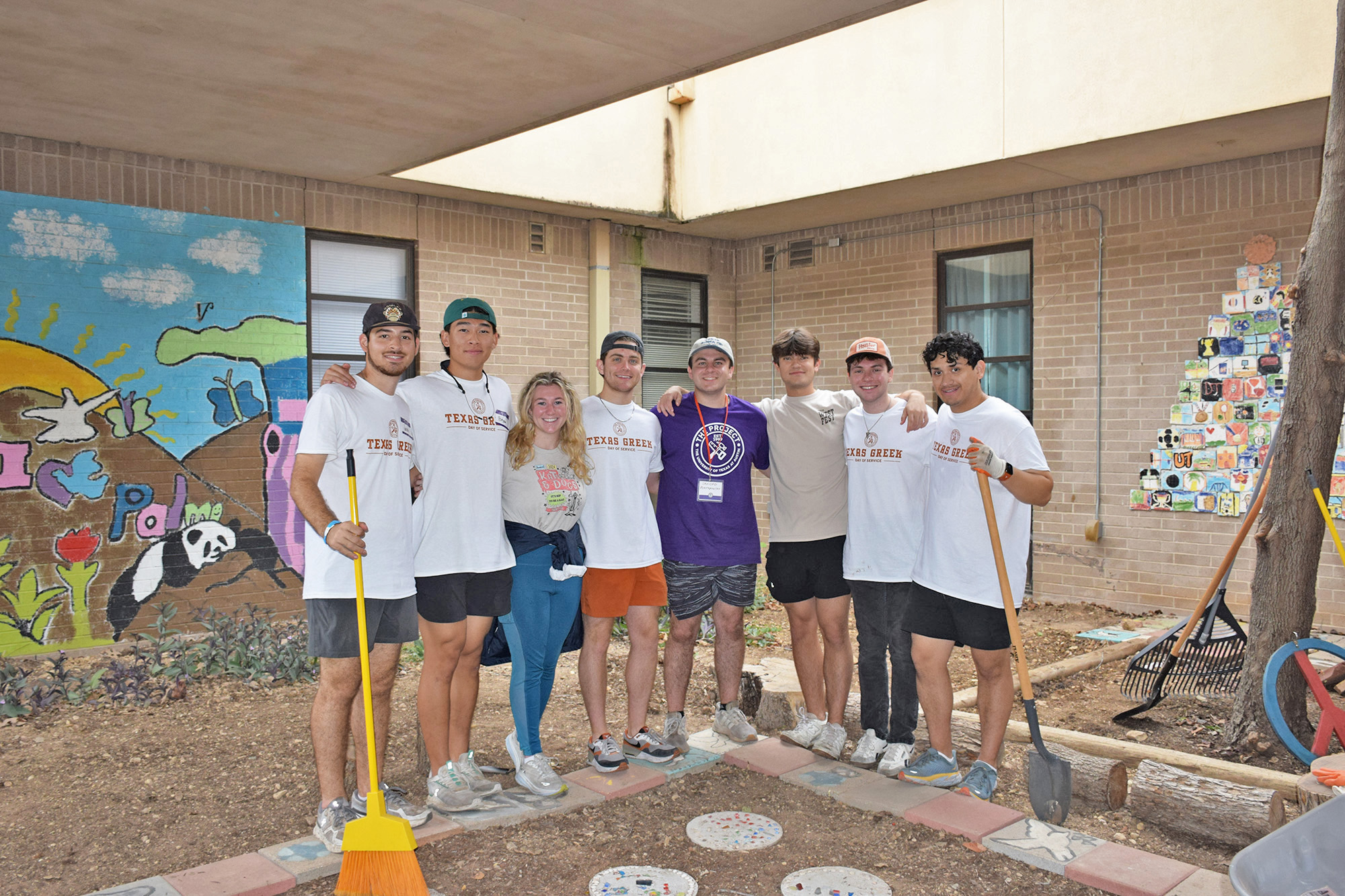Stakeholders

Chapter Advisors
Chapter advisors and other sorority and fraternity chapter volunteers are integral to the success of our undergraduate chapters. Sorority and Fraternity Life values opportunities to connect with our chapter volunteers in person, including the Volunteer Institute and the Facilities Partners Meeting. However, we know that connecting in person is not always feasible for all of our volunteers. We encourage all of our chapter advisors and volunteers to feel comfortable reaching out via email or phone at any point throughout the year. We look forward to fostering and continuing a collaborative relationship with you.
Volunteer Institute
The Volunteer Institute brings together advisors and other chapter volunteers for the purpose of delivering relevant office and university updates, leadership training and development, as well as provide a space for networking and community building. Volunteer Institute happens annually in the Fall Semester. Details regarding time and location will be posted here.
Facilities Partners Meeting
The Facilities Partners Meeting brings together housing corporation boards, house directors, and other volunteers assisting with the management of chapter facilities. The purpose is to provide a space for networking and community building between this unique group. Resources and relevant updates will be shared. The Facilities Partners Meeting happens annually in the Spring Semester. Details regarding time and location will be posted here.
Chapter Advisors Roundtable Meetings
Each semester, our Council Advisors will host council-specific roundtables with their respective Chapter Advisors. These meetings are intended to help advisors build relationships, network, and share best practices. Chapter Advisors will receive individual invitations to these roundtable meetings as they scheduled.
Friends and Family
The sorority and fraternity experience promotes individual, organizational, and community development for your student. Many sororities and fraternities are steeped in a great deal of tradition and have been founded with espoused values, ethics, and standards. As your student is exploring and examining potential membership in a sorority or fraternity, we encourage students to find organizations that act in alignment with their stated organizational values and treat each member with dignity and respect.
Helpful Hints
- Know the financial costs. Determine who will pay and what limitations those expenses may impose. For many organizations, one-time national or international dues are paid during the first year, so expect the first year of membership to be the most expensive.
- Know the names and phone numbers of the organization president, new member educator, big sister/big brother, organization advisor, and house director (when applicable).
- Encourage your student to attend leadership programs sponsored by the Office of the Dean of Students or other on campus departments.
- Encourage your student to take their time to find out about all the different organizations they could join. Membership in a sorority or fraternity is a significant and lifelong commitment, and the decision should be made with care.
Pre-College Preparedness Outreach Program
Our free program is a presentation led by our staff experts for high school students and their families. Presentations include how to build safe communities in college, myths and facts about hazing, intervention skills for parents and peers, as well as resources.
Why talk about hazing and high-risk behavior with high school students and families?
We've learned through our own research that some students experienced hazing before coming to university, but couldn't identify it as hazing when it happened. Talking about these topics early and often prepares prospective college students to recognize and respond to high-risk behaviors, like hazing, when they happen. We also learned most students prefer to speak with a trusted mentor or family member instead of reporting hazing to the university. Having informed community and family increases the likelihood of students finding support when they need it.
Program Goals
- Teach participants to identify hazing and other high-risk behaviors,
- Develop tools to identify, assess, and interrupt high-risk or unsafe activities,
- Dispel common myths that hazing is normal,
- Build a supportive community for students that understands hazing and other potential challenges in the college experience.
Can you come to my organization and present?
We can host an outreach program at your location or ours, or virtually. Program sessions are usually between one and one and a half hours long, and can be tailored to fit specific community needs.
Email our team to request a presentation.
Can I do it myself?
We can help you lead your own community conversation about these topics with a toolkit to tailor our content to your audience. We may also be able to provide print materials and other helpful resources.
Email our team for the Pre-College Preparedness Outreach Program practitioner's guide.
Family Summer Orientation Session
Sorority and Fraternity Life hosts one information session during each Family Orientation session of the summer orientation season. Please refer to your orientation program or cell phone application for the exact time and location.
In this session, you will receive a general overview of the sorority and fraternity community at UT Austin. With more than 6,000 members active on campus, UT Austin has one of the oldest and largest sorority and fraternity communities in the country. Members maintain high GPAs, are involved all around the campus, and contribute positively to the campus and Austin community. We will review topics such as how to join, the benefits of membership, and safety.
We know that you have several options for sessions during your student's orientation session, but we hope that you will consider spending some time learning about Sorority and Fraternity Life with us! If you are unable to attend our session, but are still interested in obtaining the information, please reach out to sfl@austin.utexas.edu.


